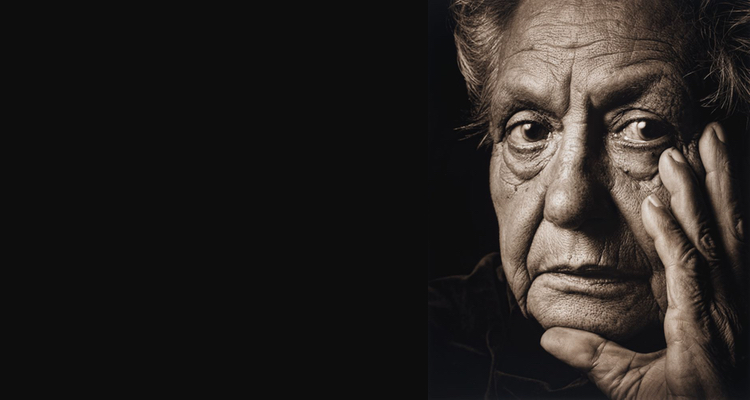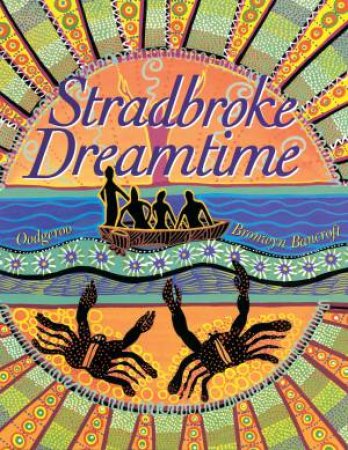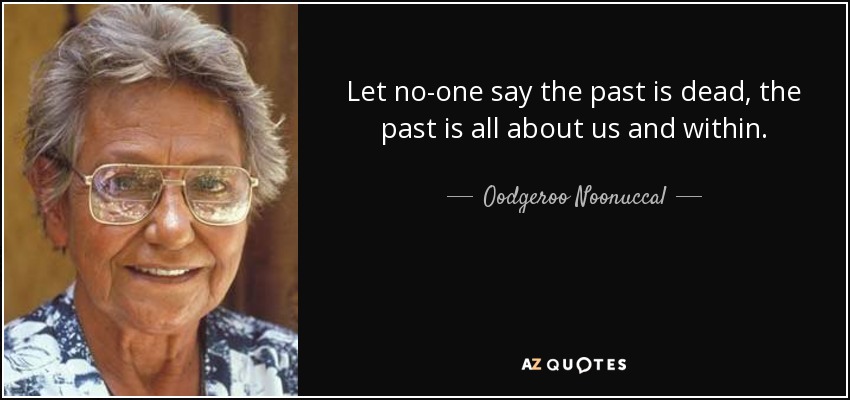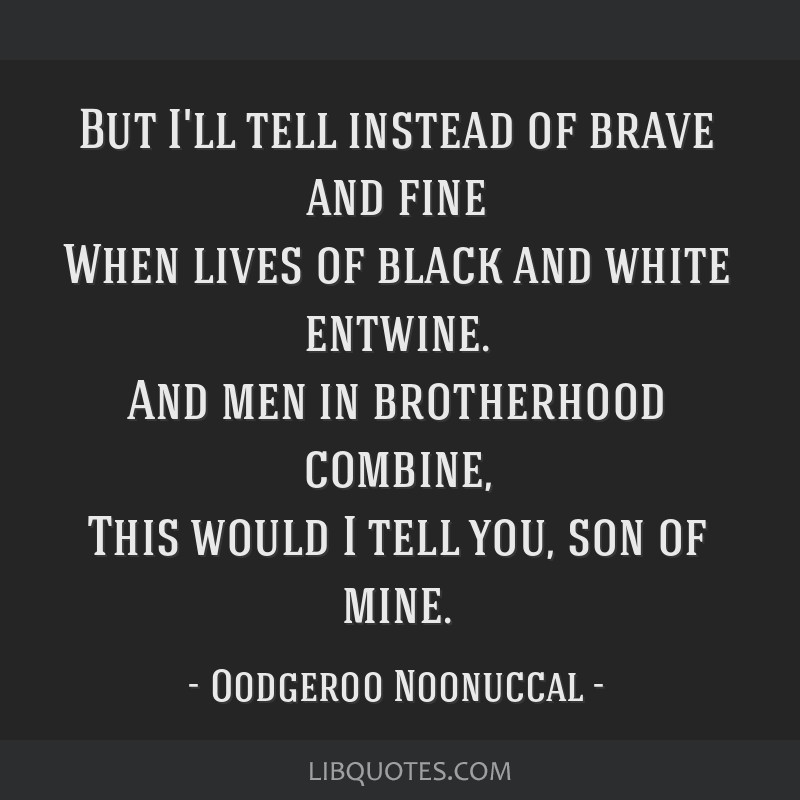
Oodgeroo Noonuccal was born Kathleen Jean Mary Ruska, formerly Kath Walker) (3 November 1920 – 16 September 1993). She was an Australian Aboriginal political activist, artist and educator. She was also a campaigner for Aboriginal rights. In 1988 she adopted a traditional name: Oodgeroo (meaning "paperbark tree") Noonuccal (her tribe's name).
Oodgeroo was best known for her poetry, and was the first Aboriginal Australian to publish a book of verse.
Her first book of poetry was extraordinarily successful, selling out in several editions, and setting Oodgeroo well on the way to be Australia's highest-selling poet. Oodgeroo embraced the idea of her poetry as propaganda, and described her own style as "sloganistic, civil-writerish, plain and simple.' She wanted to convey pride in her Aboriginality to the broadest possible audience, and to popularise equality and Aboriginal rights through her writing.

She published two children’s books, Stradbroke Dreamtime (1972) and Father Sky and Mother Earth (1981). She died in 1993 in Victoria, Australia aged 72.
In 2016 the Queensland Poetry Festival introduced an indigenous program which included the inaugural Oodgeroo Noonuccal Indigenous Poetry Prize.
Like me, Ooodgeroo was left handed and suffered many painful experiences during her school years. She writes, 'There were many painful scenes when I refused to pick up a pencil with my right hand; many times the headteacher's ruler came down in full force on the knuckles of my left hand... But for a long time I managed to hide from the sewing teacher the fact that I used my left hand for needlework.'
The poem 'Municipal Gum' is a powerful example of her poetry and her strong activism. Oodgeroo's words continue to stir and provoke thought.
Municipal Gum by Oodgeroo Noonuccal
Gumtree in the city street,
Hard bitumen around your feet,
Rather you should be
In the cool world of leafy forest halls
And wild bird calls
Here you seems to me
Like that poor cart-horse
Castrated, broken, a thing wronged,
Strapped and buckled,its hell prolonged,
Whose hung head and listless mien express
Its hopelessness.
Municipal gum, it is dolorous
To see you thus
Set in your black grass of bitumen--
O fellow citizen,
What have they done to us?
Kath Walker (OODGEROO
NOONUCCAL)




Municipal Gum by Oodgeroo Noonuccal
Gumtree in the city street,
Hard bitumen around your feet,
Rather you should be
In the cool world of leafy forest halls
And wild bird calls
Here you seems to me
Like that poor cart-horse
Castrated, broken, a thing wronged,
Strapped and buckled,its hell prolonged,
Whose hung head and listless mien express
Its hopelessness.
Municipal gum, it is dolorous
To see you thus
Set in your black grass of bitumen--
O fellow citizen,
What have they done to us?
Hard bitumen around your feet,
Rather you should be
In the cool world of leafy forest halls
And wild bird calls
Here you seems to me
Like that poor cart-horse
Castrated, broken, a thing wronged,
Strapped and buckled,its hell prolonged,
Whose hung head and listless mien express
Its hopelessness.
Municipal gum, it is dolorous
To see you thus
Set in your black grass of bitumen--
O fellow citizen,
What have they done to us?



Just Wow! Thank you for introducing me to Oodgeroo Noonuccal!
ReplyDeleteCheriee, your response pleases me immensely. To celebrate and recognize a poet who displayed such spirit and belief is a joy that deserves sharing.
ReplyDeleteWhat a fascinating poet! Thanks for the introduction.
ReplyDeleteOh, how she makes me ache for the city gumtree and the cart horse...what have we done, indeed?
The role of the writer is to evoke a response from the reader. It appears to have transpired in the course of your reading here, Mary Lee. I am pleased to have facilitated this introduction.
DeleteThank you for sharing the magic of Oodgeroo and her work, Alan. Another example of power of poetry and how it brings us all together no matter what part of the globe we live in. =)
ReplyDeletePower of poetry is definitely evident in Oodgeroo's body of work Bridget, and I agree with you regarding poetry's universal appeal. Thank you for your comments.
DeleteThat you for introducing me to Oodgeroo. Her poetry and words you share here are powerful. I will not look at a city tree (more likely ash or pear instead of gum in my part of the world) the same way again.
ReplyDeleteThere exists in poetry a power to change or add to our perspectives. I think the poetry of Oodgeroo Noonuccal possesses such power Kay, so it is pleasing that you have responded in this way.
Delete